How to Get a Mortgage with Chapter 13 Bankruptcy: A Step-by-Step Guide
Navigating the road to homeownership can be challenging for anyone, but it can feel particularly daunting for those who’ve gone through a Chapter 13 bankruptcy. After the financial strain and difficult decisions that lead to bankruptcy, the idea of securing a mortgage may seem out of reach. However, the truth is that buying a home with an active Chapter 13 bankruptcy is entirely possible. In fact, many individuals have successfully bought homes while in Chapter 13, provided they follow the right steps and meet the necessary criteria.
In this article, we’ll guide you through how to get a mortgage with a Chapter 13 bankruptcy, share essential tips for improving your chances of approval, and highlight resources such as Forever Home Financing and HUD.gov to help you along the way.
Understanding Chapter 13 Bankruptcy
Before we dive into how to secure a mortgage while in Chapter 13 bankruptcy, it’s essential to understand what Chapter 13 bankruptcy entails. This type of bankruptcy, often called “reorganization bankruptcy,” allows individuals with regular income to create a repayment plan to pay off debts over a period of 3 to 5 years. Unlike Chapter 7 bankruptcy, which involves liquidating assets to pay creditors, Chapter 13 enables debtors to keep their property (including their home) while gradually repaying their outstanding debts.
The goal of Chapter 13 is to provide debtors with a manageable plan to repay creditors, but it also has long-lasting effects on one’s credit score and financial history. However, with discipline and commitment, borrowers can improve their credit score during the repayment period, making it possible to secure a mortgage down the road.
Can You Get a Mortgage During Chapter 13 Bankruptcy?
The short answer is yes. While obtaining a mortgage during Chapter 13 bankruptcy may be more difficult than in typical circumstances, it’s not impossible. Many potential homeowners have successfully navigated the process, and there are specific steps you can take to make your goal a reality.
FHA Loans: A Good Option for Borrowers in Chapter 13
If you are currently in Chapter 13 bankruptcy and looking to secure a mortgage, an FHA loan could be an excellent option to consider. The Federal Housing Administration (FHA) insures loans made by FHA-approved lenders, which makes it easier for individuals who have undergone financial difficulties to qualify for a mortgage.
The FHA has specific guidelines for borrowers who are in Chapter 13 bankruptcy. Here’s what you need to know:
1.Minimum Wait Time: If you’re in Chapter 13 bankruptcy, you must be at least one year into your repayment plan before you can apply for an FHA loan.
2.Successful Payments: To be eligible, you must have made your Chapter 13 payments on time for at least 12 months. Lenders need to see that you are actively working to pay off your debt.
3.Court Approval: You will need to get court approval to take on new debt during the Chapter 13 bankruptcy period. The court will need to confirm that your mortgage payments will fit into your repayment plan.
4.Credit Score Requirements: While FHA loans are generally more forgiving of credit issues, you may still need a credit score of at least 580 for a 3.5% down payment. Some lenders may be flexible, but it’s essential to work closely with your lender.
5.Debt-to-Income (DTI) Ratio: Lenders will evaluate your DTI ratio to ensure you can handle the added mortgage payments on top of your existing Chapter 13 plan payments. A DTI ratio of around 43% or lower is usually considered acceptable.
Conventional Loans with a Chapter 13 Bankruptcy
Securing a conventional loan (non-government-backed) while in Chapter 13 bankruptcy is a bit more difficult but still possible. Conventional loans tend to have stricter criteria than FHA loans, particularly when it comes to credit scores and down payments.
For conventional loans, here’s what you’ll generally need:
1.Two Years Post-Chapter 13 Discharge: Conventional lenders often require you to be at least two years out of bankruptcy before they’ll approve a loan. However, if you are still in Chapter 13 but have made at least 12 months of successful payments, you may still be eligible.
2.Court Approval: Just like with an FHA loan, you will need court approval to take on a mortgage during Chapter 13 bankruptcy. The judge will need to confirm that the mortgage payments fit into your Chapter 13 repayment plan.
3.Credit Score Requirements: Conventional loans typically require a credit score of at least 620 or higher, which can be a barrier for those in Chapter 13. However, some lenders may be willing to work with lower credit scores if other criteria are met, such as a strong income history and solid financial management.
4.Down Payment Requirements: Conventional loans often require a down payment of at least 3% to 5%. If your credit score is on the lower end, the down payment may need to be higher.
Steps to Get a Mortgage with Chapter 13 Bankruptcy
Now that you know the types of loans available to borrowers in Chapter 13 bankruptcy, let’s go over the steps you need to take to increase your chances of securing a mortgage.
Step 1: Complete Your Chapter 13 Repayment Plan
The first step in obtaining a mortgage while in Chapter 13 bankruptcy is completing your repayment plan as scheduled. Lenders want to see that you’ve been successfully making payments to your creditors and that you’re committed to your financial recovery. As mentioned earlier, you must have made at least 12 months of timely payments on your Chapter 13 plan before applying for a mortgage.
Step 2: Obtain Court Approval
You’ll need to get approval from the bankruptcy court to take on a new mortgage. This is an essential part of the process and can take some time, so plan ahead. To get court approval, your mortgage payments must fit within your current repayment plan, meaning you’ll need to demonstrate that you can afford both your current debts and the new mortgage.
Step 3: Improve Your Credit Score
Although you may be eligible for an FHA loan with a credit score as low as 580, improving your credit score can help you secure a better interest rate and mortgage terms. It’s a good idea to pay down any outstanding debts, keep your credit card balances low, and make sure all your bills are paid on time. Even small improvements to your credit score can make a big difference.
Step 4: Gather Your Documentation
Lenders will require extensive documentation to assess your financial situation. Be prepared to provide the following documents:
•Proof of Income: Pay stubs, tax returns, and any other documentation of income.
•Proof of Timely Chapter 13 Payments: You’ll need to provide documentation that shows you’ve made your Chapter 13 plan payments on time.
•Bank Statements: Lenders will want to see that you have sufficient savings and assets to cover the mortgage.
Step 5: Work with an Experienced Lender
One of the most crucial steps is to work with a lender who specializes in helping individuals in Chapter 13 bankruptcy. A knowledgeable lender will guide you through the process and help you identify the best mortgage options for your situation. Forever Home Financing has extensive experience helping borrowers with a Chapter 13 bankruptcy obtain home loans.
At Forever Home Financing, we understand the challenges you face, and our team is dedicated to finding the right mortgage solution for you. Whether you’re interested in an FHA loan or need help navigating the requirements of a conventional loan, we’re here to help you every step of the way.
Resources to Help You on Your Journey
To help you get started on your mortgage journey, here are some valuable resources:
1.HUD.gov: The U.S. Department of Housing and Urban Development (HUD) provides a wealth of information for homebuyers, including resources for those in bankruptcy. You can visit HUD.gov for more details on mortgage programs and guidelines.
2.Forever Home Financing: As a trusted VA and FHA-approved lender, Forever Home Financing can assist you in securing a mortgage during or after Chapter 13 bankruptcy. Contact us today to learn about your options and start your homebuying journey.
Conclusion
While obtaining a mortgage during a Chapter 13 bankruptcy is challenging, it is far from impossible. With the right strategy, court approval, and a solid financial plan, you can successfully secure a mortgage and move forward with homeownership. Whether you pursue an FHA loan or a conventional loan, it’s essential to work with an experienced lender who understands the complexities of bankruptcy. At Forever Home Financing, we are committed to helping you navigate this process and achieve your homeownership goals.
If you’re ready to take the next step, visit Forever Home Financing and reach out to our team for personalized guidance. For more information on bankruptcy and mortgage options, visit HUD.gov.

